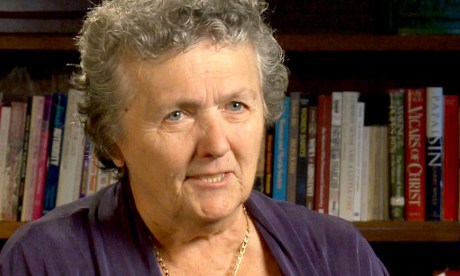There was a time in life when I wanted change and wanted it now.
I still want things done now, but over the course of the years, I discovered that, at least where the church is concerned, I was looking for action in the wrong places.
As Sean Freyne, the Irish theologian and Scripture scholar, put it, “It’s a mistake to think that a pope has the power to do anything.”
Translation: The right to reign as an autocrat, to take unilateral action about almost anything, does not come with the miter and crossed keys.
Nor, for that matter, does it come with the capes and crosses of bishops.
Popes and bishops, I have come to realize, are the maintainers of the tradition of the church.
When they move, it is commonly with one eye on the past — the point at which lies safe canonical territory.
Only we are the real changers of the church.
It’s the average layperson living out the faith in the temper of the times who shapes the future.
It is the visionary teacher, the loving critic, the truth-telling prophet that moves the church from one age to another.
It was those who had to negotiate the new economy who came to see fair interest on investments as the virtue of prudence rather than the sin of usury, for instance.
It was those caught in abusive relationships who came to realize that divorce could be a more loving decision than a destructive family situation.
And yet, the manner in which popes and bishops move, the open ear they bring to the world, the heart they show, and the love and leadership they model can make all the difference in the tone and effectiveness of the church.
Five years ago, for instance, we moved from one style of church to another.
It happened quietly but it landed in the middle of the faithful like the Book of Revelation.
Gone were the images of finger-waving popes, stories of theological investigations, and the public scoldings and excommunications of people who dared to question the ongoing value of old ways.
When Jorge Bergoglio, the newly elected Pope Francis, appeared on the balcony of St. Peter’s Basilica in Rome, he bowed to the people and asked for a blessing; the faithful roared their approval of a man who knew his own need for our help and direction.
When he told aristocratic bishops to “be shepherds with the smell of sheep” — to move among the people, to touch them, to serve them, to share their lives — episcopal palaces and high picket fences lost ecclesial favor.
What the people wanted were bishops who would come out of their chanceries, walk with them and come to understand the difficulty of the path.
When Francis told priests to deal with abortion in confession, where all the struggles of humanity find solace and forgiveness, rather than treat it as the unforgivable sin, the church grew in understanding.
When he said, “Who am I to judge” the spiritual quality of the gay community, the church became a church again.
The fluidity of human nature and the great need for mercy and strength that come with life’s most painful decisions became plain. Continue reading
- Joan Chittister is a Benedictine sister of Erie, Pennsylvania.
